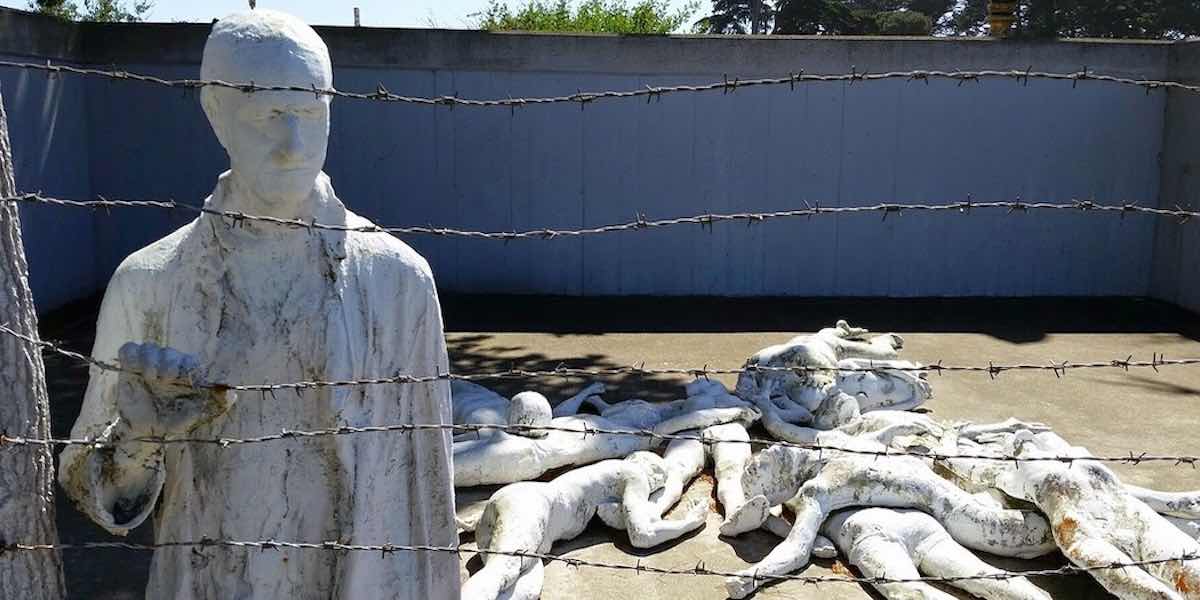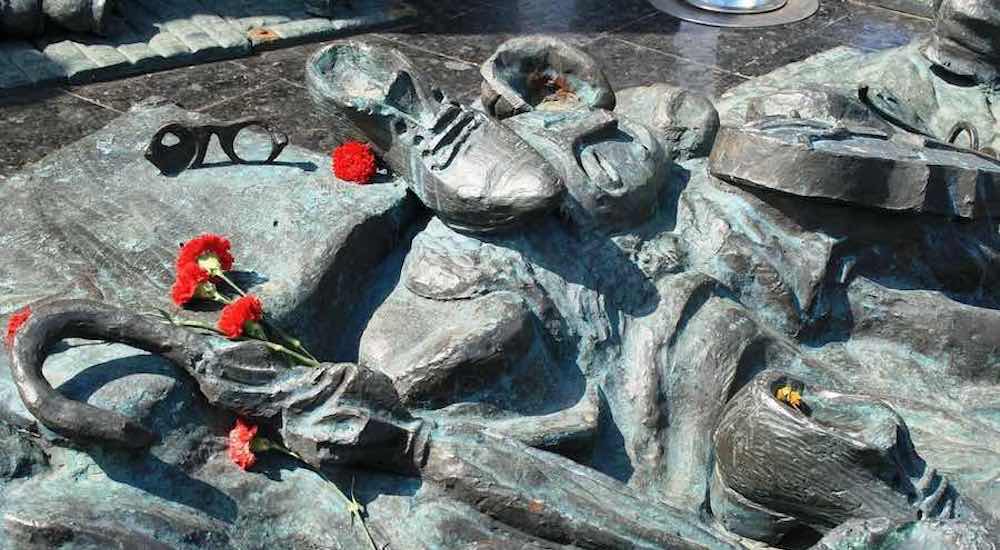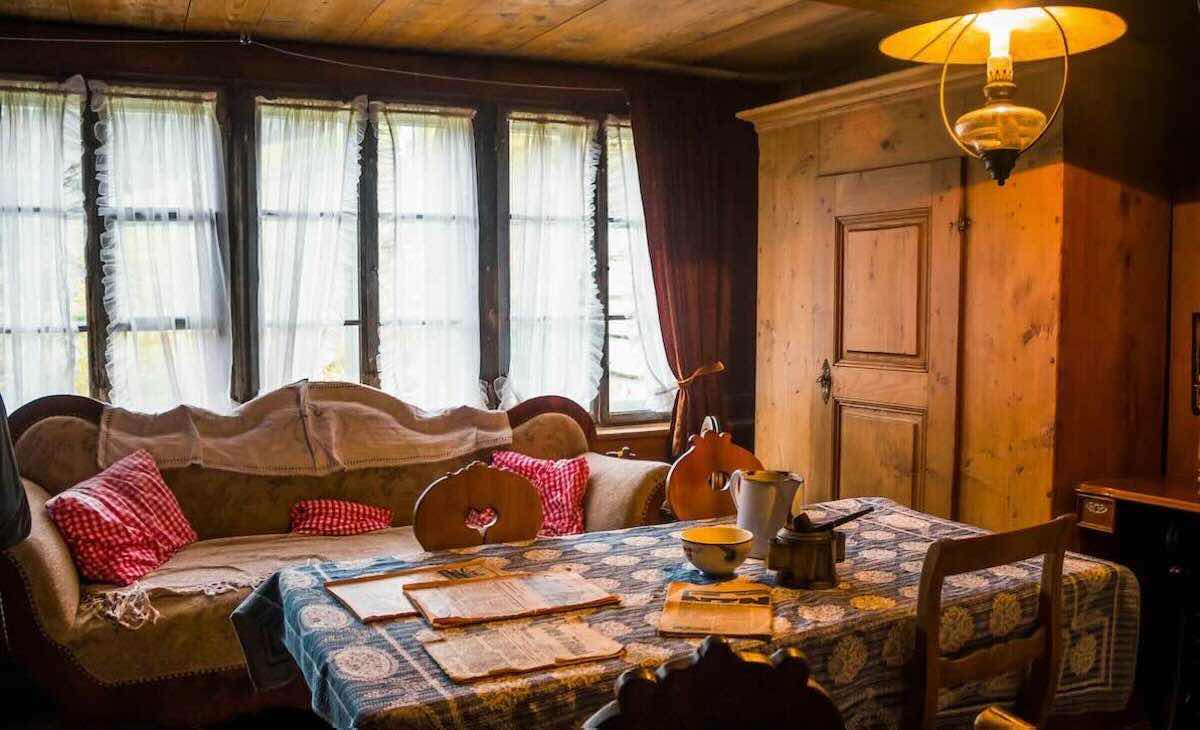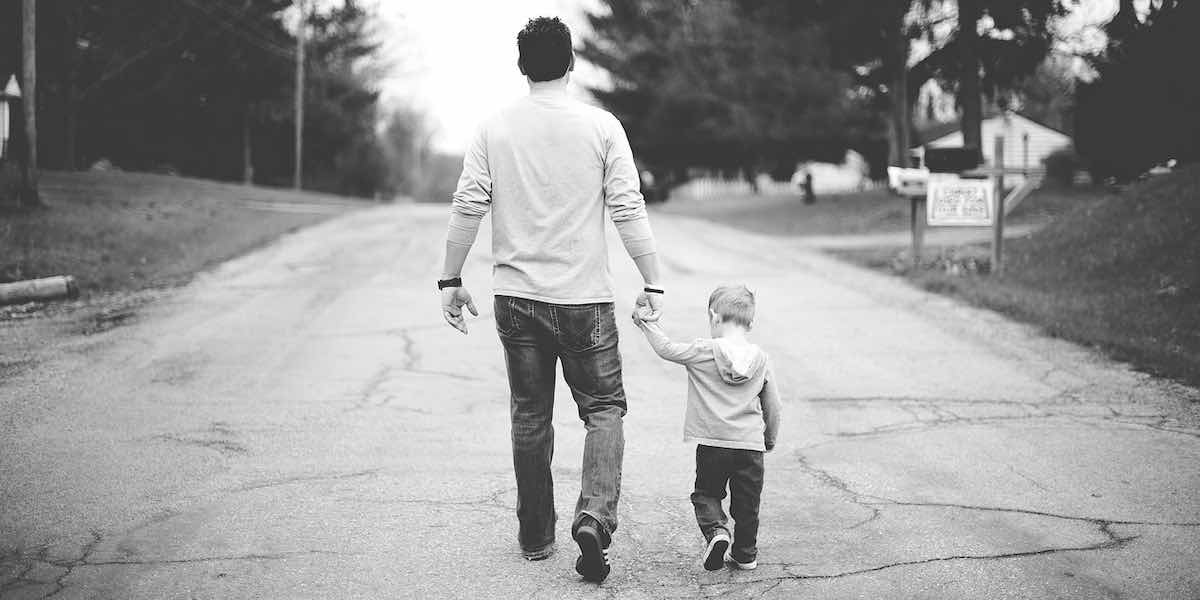
My grandparents were killed in the Holocaust. That left a void in my life. But worse, my father lived with the memory of losing his parents. Having had parents who lived through the Holocaust, I discuss how it emotionally affected them and impacted my generation.
The Holocaust was a drastic historical event that led to the mass murder of over six million Jews by Nazi Germany under Adolf Hitler's rule between 1933 and 1945.1
Those who survived carried the burden of the experience throughout their entire lives. In addition, it had an emotional effect on the next generation, and their parents didn't talk about it.
My parents left Vienna for America when the Nazis burned my father's office in November 1938 as part of their "Kristallnacht" terror campaign against Jews in Germany and Austria.2
The next step for my father was to get his parents out of harm's way.
The day was July 15, 1942. My grandparents were ready to get on the ship to escape from Austria to America the following morning. They had packed what they needed and the few things they wanted to take with them as a memory of the life they were leaving behind.
Suddenly, there was pounding on the door—not a usual knock knock knock, but a rough pounding that could have given one a heart attack.
They were afraid to open the door, fearing who it was. But that didn't help—everything changed in seconds.
The Nazis smashed the door open and violently took the elderly screaming couple out of their home. Someone must have tipped them off, storming the apartment just the day before they were about to leave. One will never know. The Nazis always watched and waited for reasons to do away with the Jews.
They were dragged to a patrol wagon and brought to a holding center, where they stayed overnight.
The next day, they were carted off to a Russian concentration camp on the outskirts of Minsk, Belarus, with several other Jews who were also apprehended just before they were about to escape to a better world.
The camp was initially for holding Soviet prisoners of war since June 22, 1941, an activity known as Operation Barbarossa. However, on May 10, 1942, it became an extermination camp known as Vernichtungslager.
Jews were brought there from Germany, Poland, the Netherlands, Austria, and the present-day Czech Republic (known as the Protectorate of Bohemia and Moravia at that time).3
Many were shot in the forest before even reaching the camp. Shot in the back of the neck. The ones that made it to the camp weren't any safer. The sick and elderly were not cared for, and the young and healthy were forced into labor.
The Nazis had no compassion for them and found it much easier to eliminate the weak ones. Most of them were lined up in front of large pits where they were shot, and then tractors came and flattened out the land.3
Many others were brought into mobile gas chambers that seemed to be community showers. Once inside, the gas was released, and they never came out alive.
The eradication of the Jewish population was in full swing, and without any hesitation, possibly because they were elderly, my grandparents were shot three days after arrival.

My parents were lucky to have left Austria in time. My father hoped to reunite with his parents soon after, but his expectations were shattered when they were murdered.
My father had a stoic personality. He was incapable of sharing personal feelings because he became emotionally numb due to losing his parents in such a tragic way.
As a child, I never understood why my father was so emotionally hindered. As an adult, I can understand how losing one's parents in such a tragic manner can destroy one's spirit. Unfortunately, I never had the chance to talk with my father about it. The subject was taboo.
My father made every effort to continue his life. He never lost his respect for community and family values, although he was making a conscious effort to overpower his sorrow.
He went on to build a practice as a medical doctor in America and made a safe and pleasant home for his wife and kids (my sister and me). Nevertheless, I knew something was missing. He worked unselfishly round the clock, thinking only of his patients.
I later understood that this was his way of avoiding thinking about the past and evoking the true nature of the deep gloom that remained with him.
My parents were willing to become part of their new life and quickly assimilated into American society. They both filed for citizenship, studied American history, and learned English.
My dad focused on being the best he could be to contribute to society. Although he was a medical doctor in Austria, he had to apply for a license to practice in America. So, he earned his MD degree a second time to practice here.
My mom was a housewife, the social custom in those days. That was a job in itself—raising kids, tending to the home, and even teaching. I have to say, she did well. Despite English being her second language, I still remember her helping me with my spelling homework. She did okay.
Most people don't know the hard work immigrants went through to blend into society, especially in those days. It was different then. No one took anything for granted. They studied hard, and they worked hard.
My father was always depressed—not clinically, but emotionally. I realize he never forgave himself for not having done better at getting his parents out along with him.
I could tell that he was hurting. He could never, ever let go of that hurt. I can only imagine the pain of having one's parents murdered. He carried that with him till the day he died.
At the time, I didn't know what previous circumstances had contributed to his philosophy. Nevertheless, it made me who I am.
My father taught me valuable life lessons by observing how he handled things. I learned from observation how to take responsibility for my feelings and actions.
My parents first settled in a small town in northern New York State—a mining town known as Port Henry.
Many of the miners were sick with lung diseases from their mining careers. My father, being a doctor, told them the truth about why they were ill.
Unfortunately, the other doctors at that time made an agreement with the mining company to keep this a secret. They made life very difficult for my father, so he eventually left town and headed for the New York City suburbs with my mother and sister.
Once again, he had to leave a life he was trying to build to seek another life elsewhere. I can imagine how unsettling that must be for someone.
I wasn't born yet, so I never knew what he and my mother went through. All that urgency to get away from a troubling situation to have that repeated once again in America.
My parent's ability to start a family was delayed because of the Holocaust. My mother was already 43 when I was born, although she was younger when she had my sister, who is seven years older than me.
I was unaware of it as a child but later realized something was missing. I knew I had a heritage. However, my parents never talked about it. So, I never learned anything about my grandparents.
My friends all talked about their grandmothers and grandfathers. They learned from them and could share their feelings, which helped during their developmental years.
I didn't have that, no grandparents to talk with. And my parents couldn't speak about the past. They needed to avoid the horrific memories.

As I grew older, I realized something was different. I tried to get some information from my dad. He refused to talk about it. My mother said it was too painful for him and I should leave him alone.
Another time, I told my mother I'd like her to tell me everything so I could write a book about it. She told me not even to consider doing that. She said it's best to leave it be.
I learned a little here and there from my aunt and uncle, who were related by my uncle being my father's brother. Even though my aunt was not blood-related, I became very close to her in the latter years before she died at 98.
Both my father and uncle were 75 when they died. I considered that early and attributed it to the turmoil they went through with their lives before escaping the Holocaust.
I developed a philosophy on life that might have come from subconscious lessons of observing my father's way of handling things.
My father strongly desired to support his family and worked hard at that. However, he had no desire to think of the future. His experience with losing his parents in the Holocaust caused him to become emotionally restrained. He was always living in the present, focusing only on daily events.
Observing his behavior shaped my personality, and I became someone who lives for the moment:
I just went through the motions of handling things the same way as my dad. I got a good education with a Master's Degree. I worked for a couple of large corporations before starting my own company. I worked hard, as my father did. I focused on my business rather than what I wanted for the future.
I wonder if this lack of thinking resulted from my father's stoic attitude. Nevertheless, I had no trouble working and handling daily affairs. I even developed a creative ability that I applied throughout my entire career. The only problem was that I focused on each day as it came rather than planning a future.
All that attitude is a result of observation—I learned to live day-to-day by noticing how my parents handled life.
No matter what goes wrong, I have a vision that we can always live another day. We will always have a chance to do things differently—and try again. I am aware that every experience, good or bad, is a learning process.
We continue to enrich our lives with new visions that we can choose to ignore or work hard at turning into a new reality. It's up to us! That's my philosophy.
I'm not saying to forget horrible experiences. History should never be forgotten. All I'm saying is that the lesson I learned from observing how my father dealt with his life has taught me that we can choose a new path when and if the option presents itself.
I understand that this is how my dad was able to carry on with his life—marrying a good woman, establishing a career, building a new life, creating a family, and doing the best for his kids.
The Nazis kept records of all their murders. Those records have been digitized and made available online in recent years. That's how I was finally able to track down the demise of my grandparents.
It takes a lot of research, but starting with a Google search of names, dates, and locations is the way to begin the search.
The murder records were not accessible until recently, when they were transcribed and made available online. Unfortunately, many Nazis lived a carefree life without being brought to justice.

If you need to gain knowledge of specific facts about your heritage, get that information while you still have a chance. It might change how you understand why you function the way you do.
I was young when my father died, and I never talked with him about the most significant thing to know about his life before my birth. I was too young to consider the importance of knowing that. And for that matter, whenever I did try to find out, he couldn't talk about it. It was too painful for him to recall the memories.
My mother also didn't want to share stories. She was too afraid of repercussions. In those days, they still feared that the Nazis might come to America and take them away.
If my dad were alive today and with the wisdom I now have, I would have an adult conversation to get some answers. I wish I had asked the following 20 questions. Not knowing the answers will forever be a void in my life. My sister said she was missing the same information. I learned the answers to the first two questions with an Internet search. But he might never have known.
Later in my life, I realized I have a lack of knowledge about my family history. There is no way to get the answers now. It's all in the past, and anyone who might have the answers is already dead. It's too late.
I'm sure whatever the answers are, it must have affected me in some way—with my upbringing, my parent's attitude with constant fear, and my subconscious response to their worries.
I will forever have a massive void without knowing my ancestors' history and what contributed to my existence. That could be the result for many children of Holocaust survivors.